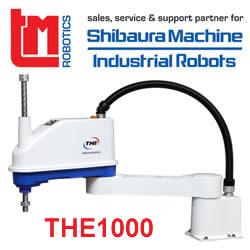Radiation Reduction During Robotic-Assisted PCI to Be Highlighted at TCT 2014
Corindus Vascular Robotics to host breakfast symposium featuring the CorPath System ---- “Robotic PCI: Precision and Protection from Occupational Hazards”
WALTHAM, Mass.---Precision and radiation protection benefits afforded by robotic-assisted technology will be the focus of a symposium sponsored by Corindus Vascular Robotics at the upcoming Transcatheter Cardiovascular Therapeutics (TCT) 2014 meeting. "Robotic PCI: Precision and Protection from Occupational Hazards" will highlight presentations from renowned interventional cardiologists on the advantages offered by robotic-assisted percutaneous coronary intervention (PCI) procedures on Tuesday, Sept. 16 at 6:30 a.m. EDT at the Walter E. Washington Convention Center, Room 144A, Washington, D.C.
The symposium will be chaired by Ehtisham Mahmud, M.D., Director, Sulpizio Cardiovascular Center-Medicine, UC San Diego, and Giora Weisz, M.D., Chairman of Cardiology, Shaare Zedek Medical Center. An audience discussion and Q&A will follow the presentation.
"Robotic assistance in coronary stenting continues to expand with the ability to treat more complex cases. We are able to take advantage of the robotic precision in guidewire manipulation and the improved visualization in the cockpit," said Dr. Mahmud. "The actual process for doing a PCI has remained unchanged for many years, with the physician standing at the bedside manually positioning devices. Now, with robotic-assisted PCI, we have a new tool that is changing the procedure and reducing radiation exposure to the operator while potentially improving the procedure for the patient."
Interventional cardiologists experience the highest amounts of radiation exposure of any medical professionals, as shown in a publication by Venneri, et al. Exposure to radiation increases an Interventionalists risk of cancer and cataracts. A recent study published by Roguin, et al. found that 86% of Interventionalists who self-reported brain tumors had the malignancy on the left side, which is the side closest to the x-ray source during procedures. Exposure to radiation, as demonstrated by Vano, et al., has also led to 50% of Interventionalists displaying significant posterior subcapsular lens changes, a precursor to cataracts, which are typical of ionizing radiation exposure. The CorPath Systems interventional cockpit provides radiation-shielding that can protect the operator from radiation exposure during PCI cases.
"We are committed to protecting physicians in the cath lab," said David Handler, President and CEO, Corindus Vascular Robotics. "This symposium will illustrate the impact robotic-assisted PCI can have on patient outcomes as well as the benefits of reducing occupational hazards such as radiation exposure and musculoskeletal disorders."
"Robotic PCI: Precision and Protection from Occupational Hazards" will feature the following speakers and topics:
PCI: A Personal Perspective - Spencer B. King lll, M.D., Emory University School of Medicine
Robotic Angioplasty: Protection and Precision - Giora Weisz, M.D., Shaare Zedek Medical Center
Improve Clinical Outcomes with Robotic Assistance - Paul Campbell, M.D., Carolinas Medical Center Northeast
Case Review: Complex Robotic-assisted PCI - Ehtisham Mahmud, M.D., UC San Diego Health System
For more information and to register for the symposium, "Robotic PCI: Precision and Protection from Occupational Hazards," click here.
To take advantage of an exclusive opportunity to use the CorPath System with a live simulator, register here and visit Corindus at booth #1342 at TCT 2014.
About Corindus Vascular Robotics
Corindus Vascular Robotics, Inc. (OTCQB: CVRS) is a global technology leader in robotic-assisted percutaneous coronary interventions (PCIs). The Companys FDA-cleared CorPath 200 System is the first medical device that offers interventional cardiologists PCI procedure control from an interventional cockpit. With the CorPath System, Corindus Vascular Robotics brings robotic precision to PCI procedures to help optimize clinical outcomes and minimize the costs associated with complications through improper stent placement. Corindus stands behind its technology with its unique $1,000 hospital credit "One Stent Program." For additional information, visit www.corindus.com, and follow @CorindusInc.
Featured Product

